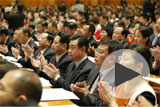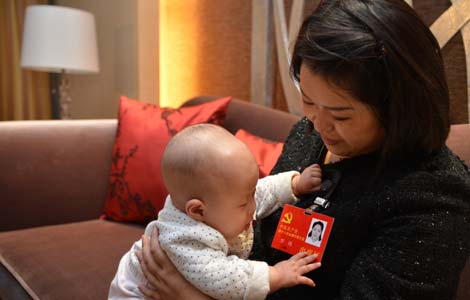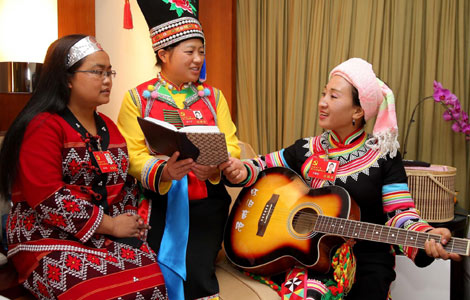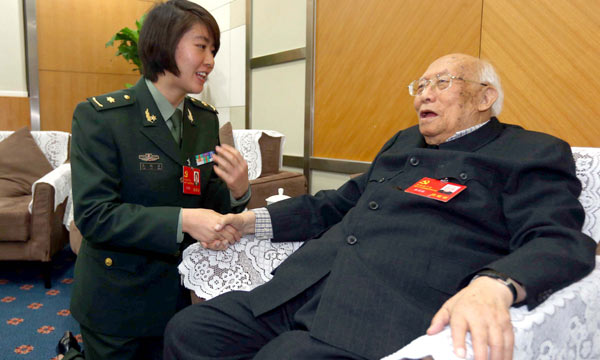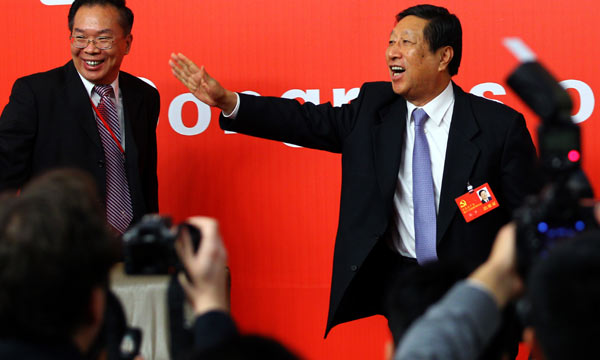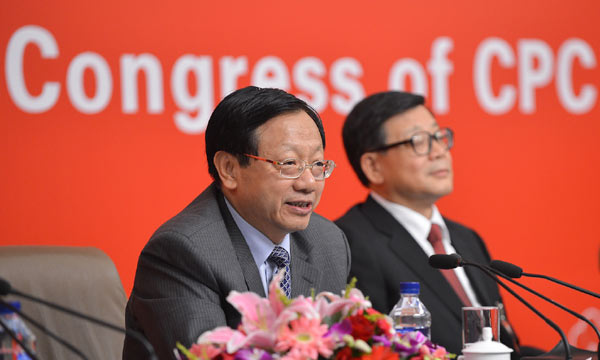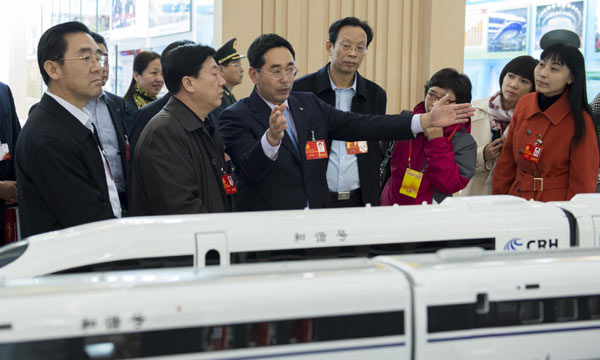Netizens hash-tag Hu's call for confidence
(Xinhua)
Updated: 2012-11-09 21:33
BEIJING - Hu Jintao has called for 82 million members of the Communist Party of China (CPC) to remain confident in the Party's theories and future, while suggesting ways to maintain it.
In a report given to the 18th CPC National Congress on Thursday morning, Hu asked the Party to keep "every confidence in our path, in our theories and in our system."
The expression quickly spread in cyberspace as many hash-tagged it. "That's quite a new catchphrase," many Party members tweeted with similar comments.
Hu said in his report that the Party has "rejected both the old and rigid closed-door policy and any attempt to abandon socialism and take an erroneous path."
"Hu's call has specific targets. Given the outstanding problems in society, the people's confidence in the road we have taken has subsided compared with that at the onset of reforms," said Pu Xingzu, a politics professor at Fudan University.
A microblogger identified as "Disturbed Intern" commented, "Deregulation. Tax cut. That's the solution."
Cheng Li, senior fellow at the Brookings Institution John L. Thornton China Center, wrote in a journal paper, "Both the growing pluralistic thinking in the Chinese society and increasing diversity among political elites make the consensus building difficult."
One of the targets of the twice-a-decade CPC national congress is to unify Party officials around a single goal, working together in concert to secure the country's progress. Some experts, however, believe the divide is greater than before.
"The crisis of beliefs is serious. That's why there is a lack of confidence in socialism with Chinese characteristics," said Cheng Enfu, a Marxism scholar at the Chinese Academy of Social Sciences.
"We can't just have firm beliefs. We also need substantial moves," wrote microblogger Zhou Yuncheng on Sina Weibo, a Twitter-like website popular in China.
"The CPC has a clear consensus regarding its general orientation. But it has mixed opinions regarding detailed institutional reforms," said Gore Lance Liangping, a senior researcher at the East Asian Institute of the National University of Singapore.
In his report, Hu vowed to "draw on the political achievements of other societies" but took care to mention that Western political systems would not be imitated in the process.
Shaun Breslin, professor of politics and international studies at the University of Warwick, said coping with diversity will depend on "incorporating the increasingly numerous and diverse sets of interests within China into account in the policymaking process."
Hu advocated developing a consultative democracy that can encourage dialogue among groups with divergent interests. He also called for deepening the administrative system reform.
Such reforms have already taken place in some areas. The southern city of Shenzhen recently implemented reforms on civil servants, suspending some positions that were previously untouchable.
Yves Tiberghien, director of the Institute of Asian Research at the University of British Columbia, said he is "optimistic about China's future."
"The Chinese leadership has handled many difficult challenges throughout the reform process and usually operates carefully and sequentially with experimentation," he said.
Related Stories
PLA senior generals back Hu's report 2012-11-09 19:03
Hu delivers report to CPC Congress 2012-11-09 09:12
Ecological progress highlighted in report 2012-11-09 08:03
Reporter's log: Buzz of becoming 'mini-spokeswoman' 2012-11-09 07:57
Hu's report gets nationwide attention 2012-11-08 18:48
Key quotes from Hu's report to CPC congress 2012-11-08 12:53
Video
